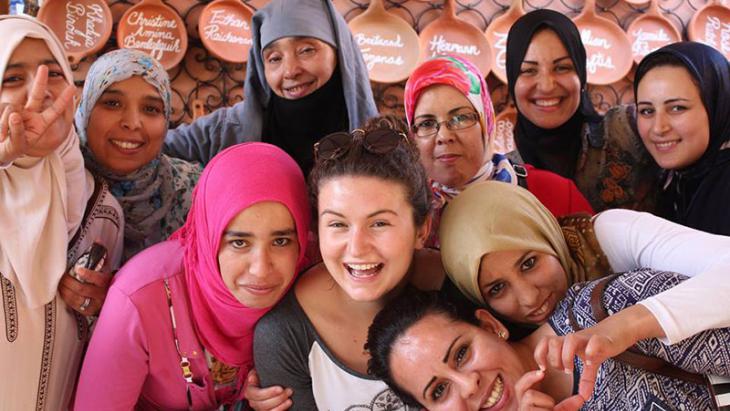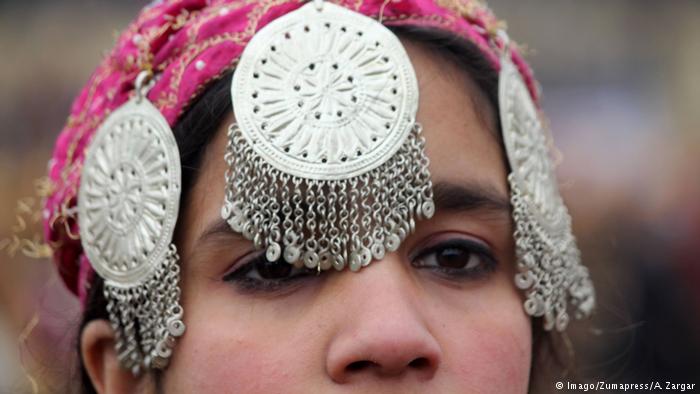Uncensored: Muslim women speak about women’s rights

A new book “Usensurert” (Uncensored) by Norwegian non-fiction writer and journalist Birgitte C. Huitfeldt takes a look behind the veil of what it means to be a woman in the Muslim world.
The need for real freedom in Egypt
 The book opens with Nawal El Saadawi, an Egyptian physician, author and well-known women’s rights advocate. She explains why Middle Eastern women have so far failed to make a breakthrough in their fight: “Women can’t be liberated under the patriarchal, imperialistic and militaristic system that determines our lives now. We are governed by power, not justice; by false democracy, not real freedom.”
The book opens with Nawal El Saadawi, an Egyptian physician, author and well-known women’s rights advocate. She explains why Middle Eastern women have so far failed to make a breakthrough in their fight: “Women can’t be liberated under the patriarchal, imperialistic and militaristic system that determines our lives now. We are governed by power, not justice; by false democracy, not real freedom.”
A Syrian psychoanalyst in exile
 Syrian psychoanalyst Rafah Nached was arrested in Damascus in September 2011 after organizing meetings to help traumatized anti-Assad protesters. She was freed two months later and now lives in exile in Paris. “In the Arab society, change is refused because whoever does not join the mass is considered an atheist or abnormal,” she says in Huitfeldt’s book.
Syrian psychoanalyst Rafah Nached was arrested in Damascus in September 2011 after organizing meetings to help traumatized anti-Assad protesters. She was freed two months later and now lives in exile in Paris. “In the Arab society, change is refused because whoever does not join the mass is considered an atheist or abnormal,” she says in Huitfeldt’s book.
Democracy is people’s will
 Shirin Ebadi is an Iranian lawyer who has dedicated her life to fighting for women’s, children’s, and refugee rights. A target of threats by the government and the police in her country, she was awarded the Nobel Peace Prize in 2003. “Democracy does not recognize east and west; democracy is people’s will. Therefore, I do not acknowledge the idea of various models of democracy,” she says.
Shirin Ebadi is an Iranian lawyer who has dedicated her life to fighting for women’s, children’s, and refugee rights. A target of threats by the government and the police in her country, she was awarded the Nobel Peace Prize in 2003. “Democracy does not recognize east and west; democracy is people’s will. Therefore, I do not acknowledge the idea of various models of democracy,” she says.
Peace between Israel and Palestinians
 “Of course, occupation is male, especially military occupation. The conflict between Israel and Palestine is a man-made conflict, and we, as women, have to end it,” says Palestinian legislator, activist, and scholar Hanan Ashrawi in the book. Despite making some controversial comments about Jewish refugees, Ashrawi has contributed significantly to the peace process between the two countries.
“Of course, occupation is male, especially military occupation. The conflict between Israel and Palestine is a man-made conflict, and we, as women, have to end it,” says Palestinian legislator, activist, and scholar Hanan Ashrawi in the book. Despite making some controversial comments about Jewish refugees, Ashrawi has contributed significantly to the peace process between the two countries.
Men’s fear of women in Yemen
 Feminist Amal Basha is from Yemen, which placed last in the UN Gender Equality Index in 2016. Women’s economic, social, and cultural rights are restricted by Sharia law there – but why? “Men are afraid of women because women are the voice of peace. They have no interest in wars since they are not arm dealers willing to milk the country through all sorts of military deals,” she says.
Feminist Amal Basha is from Yemen, which placed last in the UN Gender Equality Index in 2016. Women’s economic, social, and cultural rights are restricted by Sharia law there – but why? “Men are afraid of women because women are the voice of peace. They have no interest in wars since they are not arm dealers willing to milk the country through all sorts of military deals,” she says.
A sign of hope in Libya?
 To end the ongoing civil war in her homeland, both genders will have to change their attitudes, says Libyan Hajer Sharief, a member of the UN advisory committee and Kofi Annan foundation: “If you look into the houses, you will see mothers pushing their young sons to go to the war. Even if they don’t carry weapons themselves, they are definitely contributing to the circle of violence in Libya.”
To end the ongoing civil war in her homeland, both genders will have to change their attitudes, says Libyan Hajer Sharief, a member of the UN advisory committee and Kofi Annan foundation: “If you look into the houses, you will see mothers pushing their young sons to go to the war. Even if they don’t carry weapons themselves, they are definitely contributing to the circle of violence in Libya.”
Honor killings in Jordan
 Jordanian Rana Husseini is a feminist, human rights defender, and an investigative journalist, whose reporting sheds light on violence against women. “The Jordanian society blames women for everything: for being raped, harassed, giving birth to children of the wrong sex, and even for their husbands’ unfaithful and womanizing behavior. The list is endless,” she says on the topic of honor killings.
Jordanian Rana Husseini is a feminist, human rights defender, and an investigative journalist, whose reporting sheds light on violence against women. “The Jordanian society blames women for everything: for being raped, harassed, giving birth to children of the wrong sex, and even for their husbands’ unfaithful and womanizing behavior. The list is endless,” she says on the topic of honor killings.
Author: Jan Tomes
_____
WTO RECOMMENDS
New Year’s Eve in Cologne – A déjà vu for Muslim women
Many Muslim women recognized what happened on New Year’s Eve outside the Cologne Central Train Station from their own home countries. The problem is obvious to all and begins with circumcision, says Nalan Sipar. (From January 24, 2016)
Nearly all India’s Muslim women reject ‘triple talaq’ and polygamy (I)
More than 90 percent of Muslim women surveyed in India want the “triple talaq” divorce ritual and polygamy banned from family civil law in the country, a study by a women’s rights organization, the Bharatiya Muslim Mahila Andolan (BMMA), showed. (From September 4, 2015)
Step By Step, These Muslim Women Break Stereotypes
Lucknow (Women’s Feature Service) – Nasreen, 32, does not have a second name. A few years ago she had no income either. All that this purdah-clad mother-of-four had was a little experience in stitching. Like countless other Muslim women from conservative homes in Lucknow, Uttar Pradesh, Nasreen, too, was forbidden to step out of her home. Despite living in crushing poverty she was not allowed to look for work to chip in and make things better. (From January 22, 2015)






